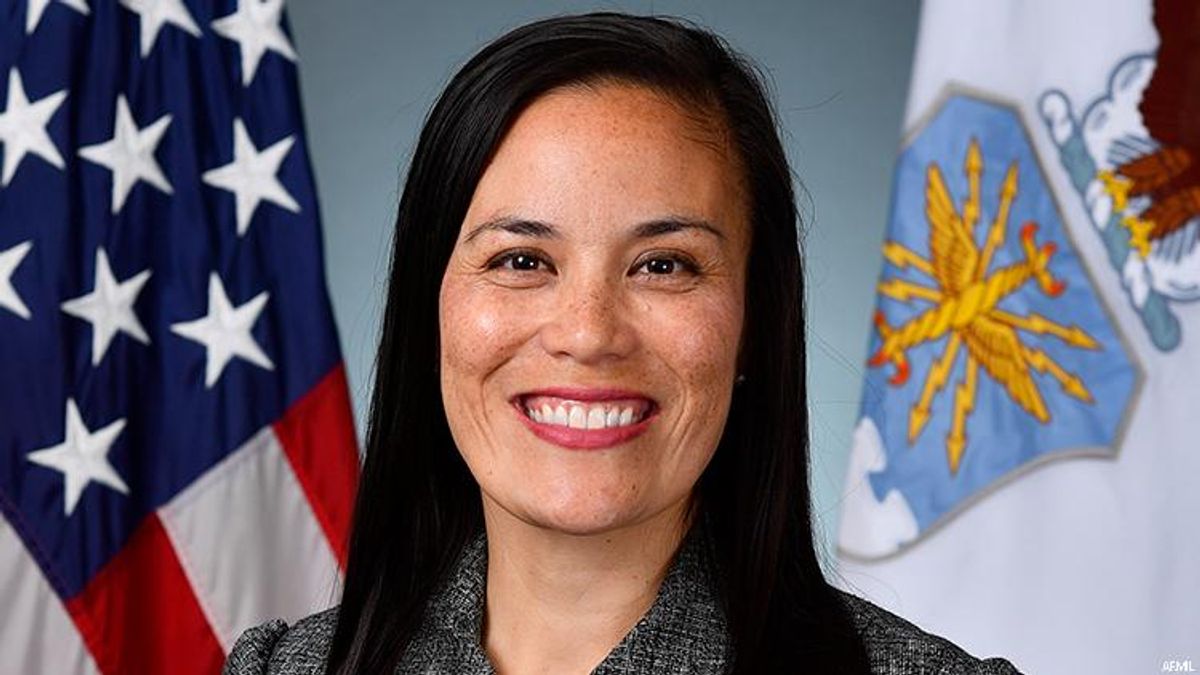The U.S. Air Force is offering assistance to service members and their families who are affected by anti-LGBTQ+ laws in states where they're based.
The assistance includes medical and legal resources in addition to help with relocation if needed, according to a press release from the Department of the Air Force. It is available to members of the Air Force and the Space Force. The department is the only branch of the armed forces to make such an announcement.
It's "an incredibly unusual move," HuffPost notes, and has not been widely publicized, except for the press release and an announcement to service members, both of which came last month, and a Federal News Network article. It stands to help families in a variety of states, including Florida, which recently enacted an infamous "don't say gay" law restricting school curriculum; Alabama, which has made it a felony to provide gender-affirming care to minors; and Texas, where the governor has ordered that parents who support their children's gender transition be investigated for child abuse, although the order is temporarily on hold because of a lawsuit. Several other states have passed or are considering anti-LGBTQ+ legislation, such as bans on trans youth's participation in school sports under their gender identity.
"The health, care and resilience of our [Department of the Air Force] personnel and their families is not just our top priority -- it's essential to our ability to accomplish the mission," Air Force Undersecretary Gina Ortiz Jones said in the press release. Jones is a lesbian, one of many out officials in President Joe Biden's administration. "We are closely tracking state laws and legislation to ensure we prepare for and mitigate effects to our Airmen, Guardians [Space Force members] and their families. Medical, legal resources, and various assistance are available for those who need them."
Air Force medical facilities should be families' first stop in accessing care, she said. For legal help, lawyers at Air Force bases cannot represent service members in court, but they can offer advice.
She said those who need to relocate can apply under an existing program, the Exceptional Family Member Program. "As is the case with all of our family members, if the support a family member needs becomes unavailable, commanders can work to get the service member to an assignment where their loved ones can receive the care they need," she said.
"The Department of the Air Force is putting practical policy and compassion behind a matter of great concern to the administration. Family readiness is key to combat readiness," retired Lt. Gen. Bruce Wright, president of the Air & Space Forces Association, told HuffPost. "Taking care of ALL Airmen, Guardians, and their families, whatever their challenges, is a core leadership principle and the department is demonstrating real and practical commitment here."
"These discriminatory policies, bills and laws are causing real harm and distress to LGBTQ+ families," Human Rights Campaign spokesperson Delphine Luneau told the outlet. "Like any good employer, the Air Force is taking steps to support their service members and their families."
"This is what strong leadership looks like. I have never run into something like what we are experiencing now: local- and state-sanctioned discrimination," Todd Weiler, former assistant secretary for manpower and reserve affairs at the Department of Defense, told Federal News Network. "It is reprehensible, and it falls on federal entities, like the Air Force, and commercial businesses to protect the equality of our people."
Air Force spokesperson Laurel Tingley said no member has requested legal help so far, and the service doesn't track requests for mental health care. The service "is being proactive about making sure our airmen, guardians, and their families are aware of the help that's available as they explore their options," Tingley told HuffPost.
While the Air Force's action is unusual, there is precedent. For instance, before the Supreme Court ruled for marriage equality nationwide, the Army offered legal advice to service members who were traveling out of state to marry a same-sex spouse and then returning to a state where their marriage wasn't recognized, Tammy Smith, who once oversaw Army personnel policies, told Federal News Network. It also advised members who had questions around the repeal of "don't ask, don't tell."












































































